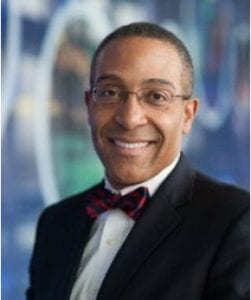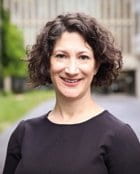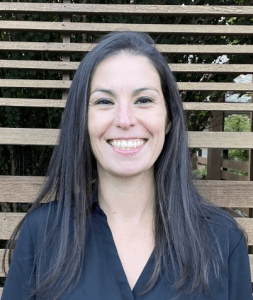
This month, we’re pleased to feature members of our community who volunteer on ACGME Review Committees.
Byron Joyner, MD, MPA
Vice Dean for GME and DIO
The University of Washington School of Medicine is the Sponsoring Institution for over 120 residency and fellowship training programs that are accredited by the Accreditation Council for Graduate Medical Education (ACGME).
Within the ACGME, 28 Review Committees are groups of volunteers who set accreditation standards, provide peer evaluation of Sponsoring Institutions or programs to assess the degree to which they comply with the applicable published accreditation requirements, and confer an accreditation status for each Sponsoring Institution or program as to its compliance with those requirements. There are three types of Review Committees: Specialty Review Committee (SRC), Transitional Year Review Committee (TYRC), and Institutional Review Committee (IRC). (ACGME Glossary of Terms, April 15, 2020)
We have always had strong representation from the UW School of Medicine on ACGME Review Committees. And, for the last 3 years, our DIO, Dr. Joyner, has been an active member of the IRC. In this month’s DIO Blog, we highlight some current and past members who told us about their experiences volunteering on ACGME Review committees.
Why were you interested in participating on an ACGME Review Committee? |
|
| As a PD I wanted to understand more about how decisions are made when it comes to accreditation, probation, areas for improvement and I also wanted to have a voice in the future training requirements in pediatrics. (And the committee consists of a number of pediatric educators that I highly respect and enjoy spending time with). |  Heather McPhillips, MD Former Program Director, Pediatrics Professor Pediatrics Review Committee |
|
I wanted to see how it worked and what it was like on the “other side” of running a fellowship program. I thought it would be wonderful to be able to contribute on a national level in GME, and I wanted to be a voice for smaller specialty/subspecialty fellowship programs, which have different resources and ways of functioning compared with a large residency or fellowship program.
|
 Kristen Patton, MD Professor of Medicine, Cardiology-Electrophysiology Internal Medicine Review Committee |
|
I was surprised and honored to be nominated as a Radiology RC member by the American Board of Radiology in recognition of my ABR volunteer work and leadership. At the time, I was not fully aware of how the ACGME review committees functioned, and after speaking with former RRC members, I saw what a terrific opportunity this would be, to better understand Graduate Medical Education oversight and learn how the leaders in our field make critical decisions for the betterment of our specialty and for patient safety across the country.
|
 Teresa Chapman, MD, MA Former Program Director, Diagnostic Radiology Professor Radiology Review Committee |
|
As a trainee, I wanted to learn more about our graduate medical education system and accreditation. I was fortunate that my former program director, Dr. Zumsteg, not only shared that there were ongoing nominations at the beginning of my training (as a PGY-2), but also supported and recommended me for the position. I was also looking for leadership opportunities at a national level and the ability to represent residents.
|
 Brian M Cervoni Rosario, MD Rehabilitation Medicine Chief Resident PM&R Review Committee |
What has your experience been participating on an ACGME Review Committee? |
|
| Fantastic, if I had it to do over again, I would definitely volunteer. |  Fuki Hisama, MD Program Director, Medical Genetics Residency Medical Director, UW Genetic Medicine Clinic Professor Medical Genetics and Genomics Review Committee |
| It has been invaluable, particularly in understanding the processes behind determination of accreditation. Learning about the tremendous importance of the ACGME resident survey and site visits has been an eye-opening experience, and I have taken lessons from that to help improve our own program. |  Jeff Friedrich, MD, MC Associate Professor, Plastic Surgery Adjunct Associate Professor, Orthopaedics & Sports Medicine Plastic Surgery Review Committee |
| I think the benefits were augmented because I was initially Chair of the ABNS and from that position was elected/chosen for the ACGME RC. I feel thankful that I understand the two disparate yet overlapping missions, one about the standards for individual neurological surgeons and the tests required, and the other for residency program quality, mentorship, structure and standards. I feel lucky to be involved in both and saw it as a gift and not a duty. |  Richard Ellenbogen, MD Chair, Neurological Surgery Program Director, Neurological Surgery Residency Professor |
| When I was a member of the Urology RC, I had the chance to meet other Urology program directors around the country. I found them to be tremendously dedicated to serving the residents and fellows – and to improving their experiences during their training. Being on the Committee gave me a deeper understanding of how I could improve my own program. Now, as a member of the IRC, I feel as though I am contributing in a substantial way to the education of our future physician workforce. |  Byron Joyner, MD, MPA Vice Dean and Designated Institutional Official (DIO) Professor Institutional Review Committee |
| The experience has been phenomenal. I have had the opportunity to learn from many incredible leaders in my field and in GME. I also had the unique opportunity to participate in a joint ABMS-ACGME symposium representing our field, PM&R, and learn/share ideas regarding the implementation of competency-based medical education. As a trainee, one is also part of the Council of Review Committee Residents which is partly composed of current resident members of the ACGME Board and the Review and Recognition Committees in which I have had the opportunity to discuss trainees’ ideas and concerns that then get presented to the ACGME Board of Directors. | Brian M Cervoni Rosario, MD |
Who would you recommend participate on a Review Committee? |
|
|
You have to have a fairly robust knowledge of the RRC requirements for your specialty for the workload to be manageable. I would recommend PDs from either residency or fellowship who have at least 3 years of experience but ideally more who also feel knowledgeable about details in program requirements and participate actively in ADS updates each year. I think it is helpful if you have also experienced some changes in requirements over the years as context for some of the rules and discussions but that is less important.
|
Heather McPhillips, MD
|
|
Program Directors of either residencies or fellowships, and ideally active PDs with many years of experience, should consider participating on their specialty’s RC. It is important to recognize the commitment, which is involved and long. Over a six-year period, members meet for three separate meetings per year. In advance of each meeting, each member is given a stack of programs to review, and the process relies on close scrutiny of the provided materials. Because of continual changes in the program requirements, the job has never become comfortable or easy, but the value is undeniable.
|
Teresa Chapman, MD, MA
|
| I would recommend any of our program directors to volunteer on their RC if they are asked to participate. It is an effective way to learn more about the ACGME requirements and to improve your own program, not only by understanding the policies – and contributing to making policies but by understanding the reasons behind the rules. |
Byron Joyner, MD, MPA
|
What are the benefits of participating in a Review Committee? |
|
| 1. Makes you a better Program Director 2. Networking with other PDs around the country and getting to work with and know the ACGME professional staff 3. Gain a deep understanding of the ACGME regulations 4. Impact the training of the next generation in your field 5. Trips to Chicago (I love Chicago) 6. RRC dinners (none during Covid however). |
Fuki Hisama, MD
|
|
Clearer understanding of the needs both of programs and the accrediting entity. Also, possibility of improving the process mainly for programs.
|
 David Lewis, MD Section Chief, Nuclear Medicine Professor Nuclear Medicine Review Committee |
|
The two-way benefits for improving the learning environment: I bring my experience in program leadership to the national level, and I bring lessons learned from the RRC back to my program, and all benefit.
|
Jeff Friedrich, MD, MC
|
| Volunteering as a Review Committee member is a lot of work. It requires patience and persistence and many hours of reading and reviewing other programs’ applications of the ACGME requirements to their learning environments. It teaches your that there are many ways to apply the rules. | Byron Joyner, MD, MPA |
| a) Learn a lot about GME and one’s specialty when it comes to how programs are reviewed and accredited. b) Networking with various leaders in our field. c) Opportunity to voice trainees’ perspectives and concerns which could shape how training requirements. d) Although COVID-dependent, travel to Chicago! |
Brian M Cervoni Rosario, MD |
Big thanks to our colleagues who contributed to this blog post and we thank them for their service and leadership at the ACGME. Review Committees have members with expertise in specialty/subspecialty areas or other relevant expertise, resident/fellow members and public members. If you’re interested in learning more, visit the ACGME’s page on Committee Members and Selection Process.
Thank you,
Cindy and Amanda
 |
 |
| Cindy Hamra, JD, MA | Amanda Easton |
| Associate Dean, Graduate Medical Education | Program Manager, Ops & Admin |
| NAME | REVIEW COMMITTEE |
| Brian M Cervoni Rosario, MD | Physical Medicine & Rehabilitation |
| Tess Chapman, MD, MA | Radiology |
| Seine Chang, MD | OB-GYN |
| Richard G. Ellenbogen, MD, FACS | Neurological Surgery |
| Jeffrey B. Friedrich, MD, MC, FACS | Plastic Surgery |
| Fuki Hisama, MD | Medical Genetics and Genomics |
| Byron D. Joyner, MD, MPA | Institutional Review Committee |
| David Lewis, MD | Nuclear Medicine |
| Heather A. McPhillips, MD | Pediatrics |
| Kristen K. Patton, MD | Internal Medicine |
| Gautham Reddy MD, MPH | Radiology |
**Did we inadvertently leave you off this list? Please contact Amanda Easton (amande@uw.edu) and we’ll update!
